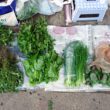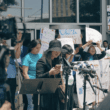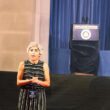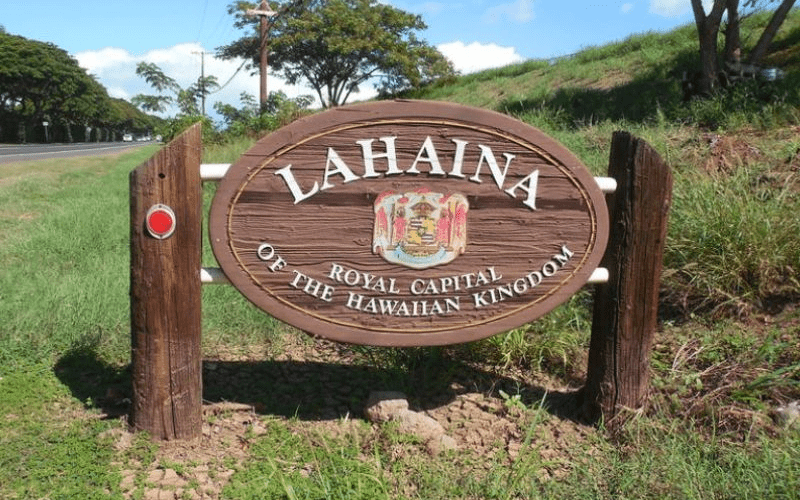Sign up here to receive The Yappie’s weekly briefing on Asian American + Pacific Islander politics and support our work by making a donation.
As wildfires continue to devastate the island of Maui, many Native Hawaiians are calling out authorities for struggling to address the disparate outcomes they suffer in cases of climate catastrophes.
The fires have taken the lives of over 100 people, making it one of the deadliest wildfires the U.S. has ever seen, and destroyed countless cultural landmarks in the town of Lāhainā—the former capital of the Kingdom of Hawai‘i.
- Fire crews and cadaver dogs are searching for those who are missing. As of Tuesday, 85% of the Lāhainā fire and 75% of the inland Upcountry Maui fire were contained.
The fire started just after midnight last Tuesday and has burned the equivalent of more than 1,600 football fields.
- Although relief has poured into Maui in the form of donations and financial assistance, many survivors are struggling to access the internet or cellphone service needed to know where to get help, Honolulu Civil Beat’s Brittany Lyte reports.
- Local authorities began releasing the first few confirmed victim identifications this week.
Consequences of climate change: Months of drought, low humidity, dry grass, and high winds from Hurricane Dora were among the factors behind last week’s wildfires.
- Over the years, the air temperature in Hawai‘i has increased while average precipitation decreased—consequences of global warming and climate change, per a 2016 report from the U.S. Environmental Protection Agency. Native Hawaiians have also noted that colonialism put the islands at higher risk as the U.S. military overtook their lands and Americans industrialized the region for tourists’ consumption.
- Maui in particular has been at risk for wildfires for years. Lāhainā was listed as one of the towns of “highest concern” for wildfires in a 2018-2019 assessment by the Hawai‘i Wildfire Management Organization.
- With more droughts and stronger storms on the horizon, the island is at risk of even more extreme weather events in the future, Grist’s Anita Hofschneider writes.
- Gov. Josh Green (D) has since ordered a comprehensive review to determine what happened.
Losing centuries of cultural history: Lāhainā was the home of Waiola Church, a mainstay for Hawaiian royals that was first established in 1823, and Pūnana Leo, an immersion school that educated local children on the Hawaiian language and culture. Both institutions are now lost to the fires, NBC News’ Sakshi Venkatraman reports.
- “There are so many aspects to that place that have been fundamentally changed,” Keoni Kuoha, program director and House Maui Initiative director at Hawai‘i Community Foundation, said in an interview with The Yappie. “The most superficial aspect is tourism, but you know, you just dig any deeper than that and the cultural loss is really unfathomable.”
- The fires have also exacerbated displacement of Native Hawaiians, who have been increasingly forced out of their homelands due to rising costs of living.
How to help: Local community organizations are collecting funds to support survivors by providing essential goods and on-the-ground assistance.
- Hawai‘i Community Foundation’s Maui Strong Fund, which will be redistributed to local community organizations responding to the fires.
- Lāhui Foundation’s fire recovery efforts.
- Maui Community Power Recovery Fund, for immediate relief and long-term recovery.
Yes, but: In the long term, advocates say legislation must be enacted to address the management of future disasters and recognize their unique impacts on Indigenous communities.
- “There needs to be a lot of intention and hard intervention there to make sure that federal resources and philanthropic resources go to support Native folks, not to stop acute harm like this, but actually, lead us on the positive path forward,” Kaniela Ing, co-founder of Our Hawai‘i, told NBC News’ Sakshi Venkatraman and Kimmy Yam.
- “It's critical that we figure this out as soon as possible and make sure that we create a system that not only gets everyone who was displaced from the fires by the fires back into Lāhainā, but opens the door for everyone else who … have had to leave Lāhainā over the years because they're just squeezed out by the economic system,” Kuoha said.
This story appeared as “The Big Story” in The Yappie’s Aug. 17, 2023 newsletter.
The Yappie is your must-read briefing on AAPI power, politics, and influence, fiscally sponsored by the Asian American Journalists Association. Make a donation, subscribe, and follow us on Twitter (@theyappie). Send tips and feedback to [email protected].









